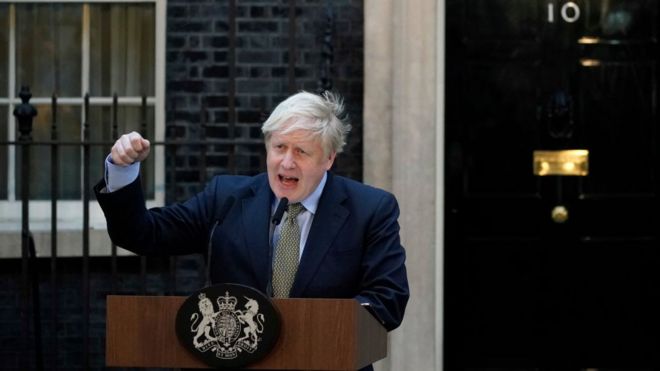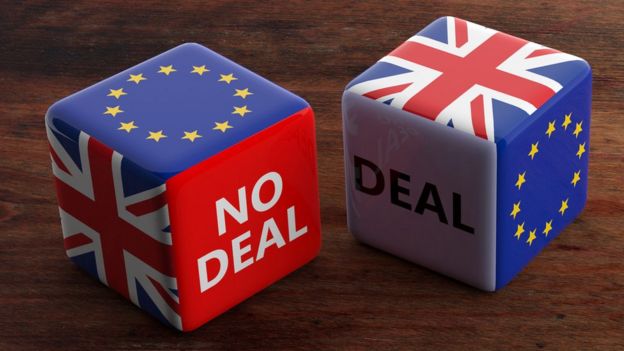 GETTY IMAGES
GETTY IMAGES
The government intends to bring down a Brexit process guillotine at the end of December 2020.
If we haven't agreed a trade deal by then, we are out anyway. The ghost of no-deal, it seems, will be haunting business in Christmas future.
The financial markets took fright and we saw the pound immediately give up all the gains it enjoyed since the Conservatives won a thumping majority last Friday.
Suddenly pundits and investors who thought an 80-seat majority would neutralise the party's hard Brexit elements prepared - or even wanting - to leave without a deal were seemingly proved wrong.
Many businesses who wanted to press the "invest now" button may have wavered this morning.
The previous parliamentary brake cables preventing the UK driving off a Brexit cliff have been cut and Thelma Johnson and Louise Cummings are driving merrily towards the edge.
That's the movie.
In real life, Boris Johnson, Dominic Cummings (and Michael Gove) really don't want to drive over the edge.
They all privately acknowledge that a no-deal Brexit would be a very bad outcome for the UK economy and the Prime Minister knows that would jeopardise his ambition to win multiple terms in Number 10.
Post-election chest beating?
Business leaders in the UK have also been slow to sound the alarm over a new potential cliff edge in December.
They know that the government found the threat of no-deal very politically useful in renegotiating the Withdrawal Agreement (even if they also think Theresa May's deal was better for business).
Many also think that this is a bit of post-election chest beating - a sentiment shared in Brussels.
According to my colleague Katya Adler, there is also a growing consensus that it is possible to do a "bare bones" trade deal by next year which can then be added to over time.
In other words, you can extend without extending.
 GETTY IMAGES
GETTY IMAGES
It also adds to the Johnsonian narrative of possessing super powers when it comes to negotiating things no-one thought possible.
There is another camp which believes that enacting a law limiting the negotiating period could actually provide political cover for Mr Johnson to concede some ground to the EU if that becomes necessary towards crunch time next year.
Rupert Harrison, George Osborne's former Chief of Staff and now portfolio manager at the world's biggest money manager Blackrock summed up in a tweet what many in financial markets are thinking.
"Anyone who thinks either side will contemplate a damaging cliff edge has learned nothing from the revealed preferences of the last year".
In other words - when push comes to shove, both sides will find a way to avoid the edge of the cliff.
One thing we learned this morning the political shadow boxing of the last three years is not over. Indeed, it is arguably just starting.
No comments:
Post a Comment